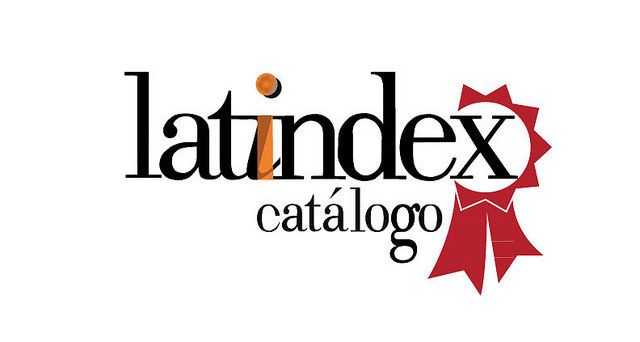Anthropology’s relevance at a global right turn
DOI:
https://doi.org/10.29340/en.v1n1.8Keywords:
anthropology, public debates, anti-intellectualism, right-wing politics, multiculturalismAbstract
A decrease in the importance of anthropologists’ participation in public debates can be traced to a number of factors, some inherent to the discipline, others not. Triviality, high specialization levels and neglecting issues of broad public interest are problems that must be debated. Additionally, the current resurgence of racist and intolerant discourses points to the possible opening of a “post-multicultural” era in which anthropological knowledge must be re-posited. The internet is another important variable for understanding contemporary anti-intellectualism in that it gives rise to a renewed illusion of transparency that seemingly renders social science useless. Ethnography—with its ability to bring us closer to cultural agents—is a base for anthropologists’ new engagement with their political and public roles.
Downloads
References
Antropólogos Polacos (2016). Anti-discrimination manifesto of Polish anthropologists and ethnologists http://zjazd.weebly.com/english.html. Acceso 2 de noviembre de 2016.
Biswas, Asit y Julian Kirchherr (2015). “Prof, no one is reading you”. The Straits Times (Singapur), 11 de abril de 2015. http://www.straitstimes.com/opinion/prof-no-one-is-reading-you. Acceso 30 de noviembre de 2016
Boas, Franz (1964 [1943]). “El problema racial en la sociedad moderna”. Cuestiones fundamentales de Antropología Cultural. Buenos Aires: Solar, pp. 253-271.
Borofsky, Robert (2004). “Conceptualizing Public Anthropology”. http://www.publicanthropology.org/Defining/definingpa.htm, acceso 11 de abrill de 2007.
Calvino, Italo (1994 [1991]). Por qué leer los clásicos. México: Tusquets.
Castells, Manuel (2012). Networks of outrage and hope. Social movements in the internet age. Cambridge/Malden: Polity Press.
Danda, Ajit K. 1995. Foundations of Anthropology: India. Nueva Delhi: Inter-India.
Diamond, Jared (1997). Guns, Germs and Steel. Nueva York: W.W. Norton.
Eco, Umberto (2015). “Las redes sociales le dan el derecho de hablar a legiones de idiotas”. https://actualidad.rt.com/actualidad/177851-umberto-eco-redes-sociales-legion-idiotas. Acceso 30 de noviembre de 2016.
Escobar, Arturo (1999). “El final del salvaje: antropología y nuevas tecnologías”, en El final del salvaje. Naturaleza, cultura y política en la antropología contemporánea. Bogotá: cerec/ican.
Fabian, Johannes (2002). Time and the Other: How Anthropology Makes its Object. Nueva York: Columbia University Press.
Frazer, James (1908). “El alcance de la antropología social”. Entrada Libre: 19-36.
García Canclini, Néstor (coord). (2011). Conflictos interculturales. Barcelona/Buenos Aires: Gedisa.
— et al (2015). Hacia una antropología de los lectores. México y Madrid: Ediciones Culturales Paidós/Fundación Telefónica/Universidad Autónoma Metropolitana.
Geertz, C. (1983). Local Knowledge: Further Essays in Interpretive Anthropology. Nueva York: Basic Books.
Glazer, Nathan (1997). We Are All Multiculturalists Now. Cambridge: Harvard University Press.
Harris, Marvin (1996 [1968]). El desarrollo de la teoría antropológica. Historia de las teorías de la cultura. Mexico y Madrid: Siglo XXI.
Heatherington, Tracey y Filippo M. Zerilli (coord.) (2016). “Anthropologists in/of the Neoliberal Academy”. Anuac. 5 (1): 41-90.
Jameson, Fredric (1984). “Postmodernism, or, the Cultural Logics of Late Capitalism”. New Left Review 146: 59-92.
Kohl, Karl-Heinz (en prensa). “Anthropology in Germany”. International Encyclopedia of Anthropology. Nueva York: Wiley-Blackwell.
Krotz, Esteban (2002) La otredad cultural entre utopía y ciencia: un estudio sobre el origen, el desarrollo y la reorientación de la antropología. México: uam-i/fce.
Lévi-Strauss, Claude (1966) “Anthropology: Its Achievements and Future”, Current Anthropology 7 (2): 124-127. DOI: https://doi.org/10.1086/200688
Low, Setha M. y Sally Engle Merry (2011). “Engaged Anthropology in the United States and its relevance for world anthropologies”, en Gustavo Lins Ribeiro (coord.), Global Anthropologies. Pekín: Intellectual Property Publishing House.
Lomnitz, Claudio (2014). “La etnografía y el futuro de la antropología en México”. http://www.nexos.com.mx/?p=23263 . Acceso 30 de noviembre de 2016.
Leader, George (2016). “Universities need more anthropology now, more than ever”. The Hufington Post. 20 de octubre. http://www.huffingtonpost.com/american-anthropological-association/universities-need-anthrop_b_12576982.html Acceso 10 de noviembre de 2016.
Moore, James (2016). Anthropocene or capitalocene? Nature, history and the crisis of capitalism. Oakland: pm Press/Kairos.
Palerm, Ángel (2006 [1974]). “Sobre el papel de la historia de la etnología en la formación de los etnólogos”. Historia de la etnología 1. Los precursores. México y Guadalajara: Universidad Iberoamericana / Instituto Tecnológico de Estudios Superiores de Occidente, pp. 7-22.
Ribeiro, Gustavo Lins (2014). “World Anthropologies: Anthropological Cosmopolitanisms and Cosmopolitics”. Annual Review of Anthropology 43: 483-498. DOI: https://doi.org/10.1146/annurev-anthro-102313-030139
— (2007). “Poder, redes e ideología en el campo del desarrollo”. Tabula Rasa 6: 173-193.
— (2006). “World Anthropologies: Cosmopolitics for a New Global Scenario in Anthropology”. Critique of Anthropology 26 (4): 363-386. DOI: https://doi.org/10.1177/0308275X06070121
— (2003). Postimperialismo. Cultura y política en el mundo contemporáneo. Barcelona y Buenos Aires: Gedisa.
— (1998). “Cybercultural Politics. Political Activism at a Distance in a Transnational World”, en Sonia Álvarez, Evelina Dagnino y Arturo Escobar (comp.), Cultures of Politics/Politics of Cultures. Revisioning Latin American Social Movements. Boulder: Westview Press, pp. 325-352.
— (1991). Ambientalismo e Desenvolvimento Sustentado. Nova Utopia /Ideologia do Desenvolvimento. Revista de Antropologia, Universidade de São Paulo (34): 59-101. DOI: https://doi.org/10.11606/2179-0892.ra.1991.111253
Spiegel, Mugsy (en prensa). “Anthropology in South Africa”. International Encyclopedia of Anthropology. Nueva York: Wiley-Blackwell.
Strathern, Marilyn (1992). After nature. English Kinship in the Late Twentieth Century. Cambridge: Cambridge University Press.
Trouillot, Michel-Rolph (2003). “Anthropology and the savage slot. The poetics and politics of Otherness”, en Global Transformations. Anthropology in the Modern World. Nueva York: Palgrave Macmillan. DOI: https://doi.org/10.1007/978-1-137-04144-9_2
Tylor, Edward Burnett (1878). Researches into the Early History of Mankind and the Development of Civilization. Boston: Estes & Lauriat, pp. 1-13. DOI: https://doi.org/10.1037/12848-001
— (1889). “On a Method of Investigating the Development of Institutions; Applied to Laws of Marriage and Descent”. Journal of the Anthropological Institute 18: 245-72. DOI: https://doi.org/10.2307/2842423
Wallerstein, Immanuel (2016). “Como deter a virada à direita”.
http://outraspalavras.net/posts/wallerstein-como-deter-a-virada-a-direita/. Acceso 30 de noviembre de 2016.
Williams, Brackette F. (1989). “A Class Act. Anthropology and the Race to Nation across Ethnic Terrain”. Annual Review of Anthropology 18: 401-444. DOI: https://doi.org/10.1146/annurev.an.18.100189.002153
Wolf, Eric (2008 [1998]). “Presentación”, en Ángel Palerm, Antropología y Marxismo. México: ciesas/uam/Universidad Iberoamericana,
pp. 21-41
— (2001 [1969]). “American Anthropologists and American society”, en Pathways of power. Building an anthropology of the modern world. Berkeley: University of California Press, pp. 13-22.
Downloads
Published
Issue
Section
License
Copyright (c) 2018 Encartes Antropológicos

This work is licensed under a Creative Commons Attribution 4.0 International License.
Aviso de derechos de autor
- Los autores/as conservan los derechos de autor y ceden a la revista el derecho a la primera publicación con el trabajo registrado con la licencia de atribución Creative Commons, que permite a terceros utilizar lo publicado siempre que mencionen la autoría del trabajo y a la primera publicación en esta revista
- Los autores/as pueden realizar otros acuerdos contractuales independientes y adicionales para la distribución no exclusiva de la versión del artículo publicado en esta revista (por ej. Incluirlo en un repositorio institucional o publicarlo en un libro) siempre que indiquen claramente que el trabajo se publicó por primera vez en esta revista.
El material puede ser copiado, distribuido, comunicado, ejecutado públicamente. Se pueden hacer obras derivadas de él. No se puede utilizar para fines comerciales. Se debe reconocer y citar la obra de la forma en que tú especifiques.










